Has it ever occurred to you that breeders are not really doing their job? Creating living things that have never existed in the world before doesn't seem to be a very human thing to do.
However, man persists in discussing with God, showing that this is a little incomplete, it seems to be good, but its drought resistance is low and its moisture output is weak. And here we are now going to tweak it...
You can criticize genetic engineers, but it's better to apply their work and support them morally. Our compatriots are among those who drive world science with their power of thought and perseverance. Their creations are the first to get to Ukrainian fields, where they bear fruit.
Stopping on the road in the countryside to the singing of crickets
For me, VNIS is a portrait of Ukrainian science. Not the one that uses budget funds and trades in research land, but the real science that is aware of all the latest trends and global ideas, that has wings and eyes, that knows the needs of farmers deeply and is focused on finding the perfect solutions. The Institute is run by Yaroslav and Myroslav Parii, smiling men in sweaters and jeans, people who accumulate positive energy and generously share it like Wi-Fi.
However, I did not come to VNIS on the eve of the season to reflect on the divine origin of the world, I came to find out what steps have been taken to address sunflower phytopathology and what kind of domestic corn we will have.
- I don't remember any easy years in agriculture, but 2020 was... just wow, how strong and unexpected... Don't you think so?” I asked Yaroslav Pariy.
- “I don't know, it wasn't a difficult year for me,” Yaroslav replied, “The year made us slow down and understand where to go, what to spend our efforts on, and evaluate what we are doing right and wrong.
- It's like in the countryside, when you pull off the road and look at the GPS, trying to figure out where you're going...
- And all around you are smelling the grass, the sun is shining, crickets are singing...
- However, we return to VNIS, our GPS leads us there. What has the Institute become in its third decade of existence?
- We have built up our muscles, become bigger and stronger. We are developing science, buying new equipment, training specialists, and improving our organization. We are at the stage when a family company becomes a large company with a modern management system. The products we offer to the market show that we have matured. We are no longer teenagers, we are young men.
In Kharkiv, we have two laboratories: a plant immunity laboratory and a molecular marker laboratory. In Kyiv, we have a biotechnology laboratory and a seed quality testing laboratory. They employ about 40 specialists, and the company has about 180 employees in total.
- That's a lot of people.
- That's a lot, and half of them are scientists. It would be nice to invest in our own growth, but we are currently investing more in science than in production.
- But you don't forget about the farmer, do you? Is your seed production expanding? How are the sales of your own seeds going?
- Sales are going well, we are almost finished with sales. We are selling popular items, such as corn and sunflower. We have a diverse clientele: large holdings buy from us, there are farms of 5-7 thousand hectares and farmers who buy by the bag - all types of clients are present. We work with Astarta, Ukrlandfarming, Harvest...
- What attracts them to your selection? Is it the price? Unique characteristics?
- All market players are in the same position, they are all looking for efficiency gains, so price, yield, savings on crop protection products, and drought resistance are the basic requirements for crops. The fact that we are a Ukrainian producer is also positive, but above all, it is the quality of our products that keeps us in business.
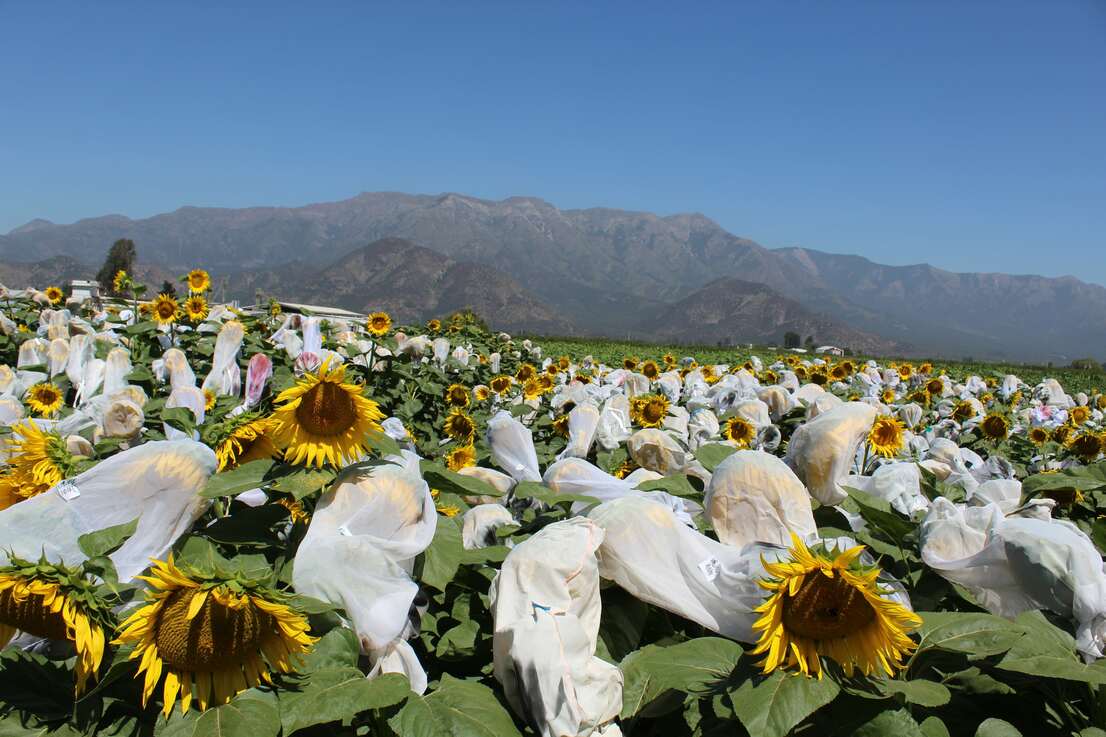
Ukrainian stories, sunflower and corn
- A decade ago, when farmers had a prejudiced attitude towards domestic hybrids, they argued that it was due to the instability and “crudeness” of the product: one year the hybrid could “shoot” and the next year it could fail. How do you explain this? Because the producers considered it to be a flaw in domestic genetics and breeding.
- Let's start with the fact that there is no domestic genetics, but a global gene pool of a particular crop and an exchange of material. There are different breeding programs, different breeding institutions. I think the problem here was not the quality of genetics, but the quality of seed production, the chaos in the market, and the large amount of counterfeit products.
In addition, domestic hybrids that were sold on the market 20 years ago lagged behind their foreign counterparts. These are clichés and myths that exist in the agricultural environment. For example, are Chinese products good or bad? Generally speaking, people think they are bad, but nowadays many renowned multinational companies belong to China, and most of their production facilities are located there. So you have to study the product, try it out, and make your own choices and conclusions.
- It is clear that your corn varies in characteristics depending on the FAO, but what is its average yield?
- I can't say about the average. However, farmers are fully satisfied with the yield of our hybrids. At the end of the year, the data are completely different, depending on the drought. In the Kherson region, we got 21 tons per hectare on split-feed irrigation, using the VN 6763 hybrid; in western Ukraine, we got 15 tons. Our hybrids exceed farmers' expectations.
- And sunflower? This is a deeply Ukrainian story, it is a strategic crop here...
- We are working on developing broomrape-resistant sunflower, as this is a big problem in our country - Zhytomyr, Chernihiv, Kyiv, Vinnytsia regions are still holding out, while all other regions are affected by broomrape. The second area is changing the fatty acid composition, and we are developing high-oleic hybrids.
- Does resistance to broomrape mean suitability for the Euro-Lightning® system?
- Not only, it is both chemical and genetic resistance, and the system of tests, field and laboratory, is of great importance here. We collect seeds in all regions, test first lines and then hybrids in Romania, where the most aggressive broomrape species exist; in Ukraine, in the Kharkiv region, we came across fields where absolutely all plants were affected, and the hybrid was the most resistant to all aggressors.
We are testing our hybrids in Spain and Turkey to withstand the diversity of broomrape races. There was a need for a laboratory that could analyze the seeds using molecular markers. We started looking for specialists and found them in Kharkiv, where the laboratory was set up.
The laboratory of immunity, which is purely practical, is an assessment of the resistance of material of lines and hybrids against different races of broomrape and powdery mildew in sunflower breeding, while phytopathologists evaluate breeding materials in the fields for all crops. And the molecular marker laboratory makes it possible to determine the purity of lines, hybridity and whether a hybrid belongs to a particular genotype; to select material using molecular markers with specified traits.
In addition, we provide commercial services to our partners there to determine the quality of their seed. There, we can determine herbicide resistance in different crops. We also use molecular markers to identify phytopathogens and their species.
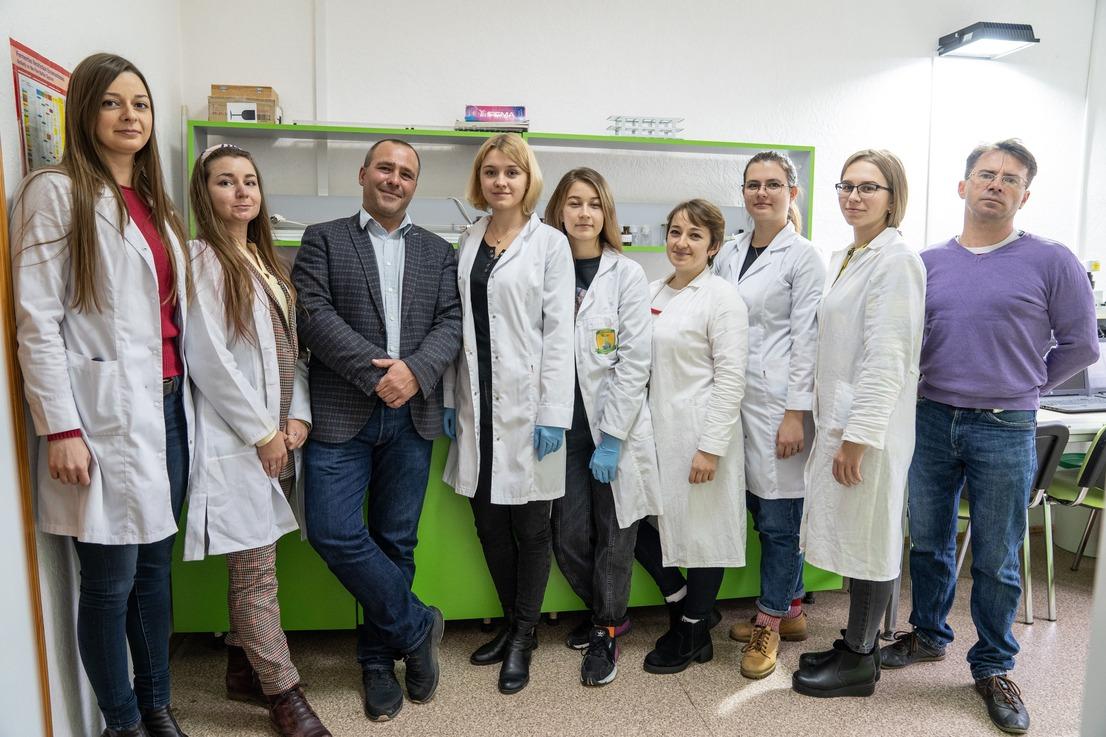
The thirst to create new things is stronger than commerce
- We are all going through the path of forced isolation as a result of the coronavirus, we are all trying to come up with some breakthrough ideas in difficult conditions... We live in the world as it is - we have no other. What drives you? What is the concept of VNIS in general?
- We are probably driven by the desire to create new things and learn new things, we are just extremely interested in what we do. This is probably problematic from a commercial point of view, I don't know how successful it can be...
- From a commercial point of view, this is the only thing that can lead to success. If you do what you are interested in and people benefit from it, success is inevitable.
- We did not have a task to accumulate capital. We accumulate our capabilities, breeding materials, employees, and scientific base. We are now investing all our profits in breeding and development. It would be possible to accumulate significant financial capital in a few years, but time and development would be lost...
- This is not the first time you've mentioned time.
- Because breeding is a very long process, and human life is 100 years, well, 110. So everything has to be compared.
- Hmm. 110 years is an all-conquering optimism.
- Absolutely. Money does not determine everything in this world. The existence of an enterprise solely to generate money is a thoughtless waste of a vital resource.
- Good. What are your plans for the 21st century? At least for 2021?
- We have planned to launch a sunflower breeding program in Romania. The conditions there are very good for creating drought-resistant materials and testing resistance to broomrape, which greatly simplifies the breeding process. In 2021, we are launching a new line of hybrids, expanding our production areas, and setting up a service department to interact with farmers and advise them on growing our hybrids.
- How do you see the world this year?
- Let's start with the Ukrainian agricultural sector. Trends will continue, land will be concentrated in fewer owners. The struggle for efficiency will continue. And the world will follow the established path.
- Look, the smartphone came into technology, became a tool for agronomists, it changed the world in a short time... The world is moving extremely fast. And you release a new hybrid every seven years.
- However, we are constantly in this process, we are constantly releasing updates.
- However, a person receives a million times more information than 15 years ago.
- This is a problem of communication... I am told that I don't need to write anything anymore, I need to make videos... However, the Internet, thanks to its accessibility and speed, is suitable for transmitting quick, short messages, but if you need in-depth information, it is almost impossible to find it on the Internet.
- Yes, especially in times of kovid. We can't predict what diseases will be in the future, plant diseases in particular, but you do predict something, right? You don't work on an after-the-fact basis, do you?
- Actually, we work with diseases after the fact. You can predict the emergence of diseases. How could you fight the covid before the covid appeared? As soon as a disease appears, we search for genotypes that are resistant to it. Otherwise, we would have to do everything. And we are not gods. We cannot do everything at the same time.
- I have a different opinion.
- There is a general immunity of plants, and the strongest plants are selected on this basis. However, selecting the healthiest plants and using them in agriculture will attract pathogens that will affect these particular plants. And only when pathogens appear can we fight them.
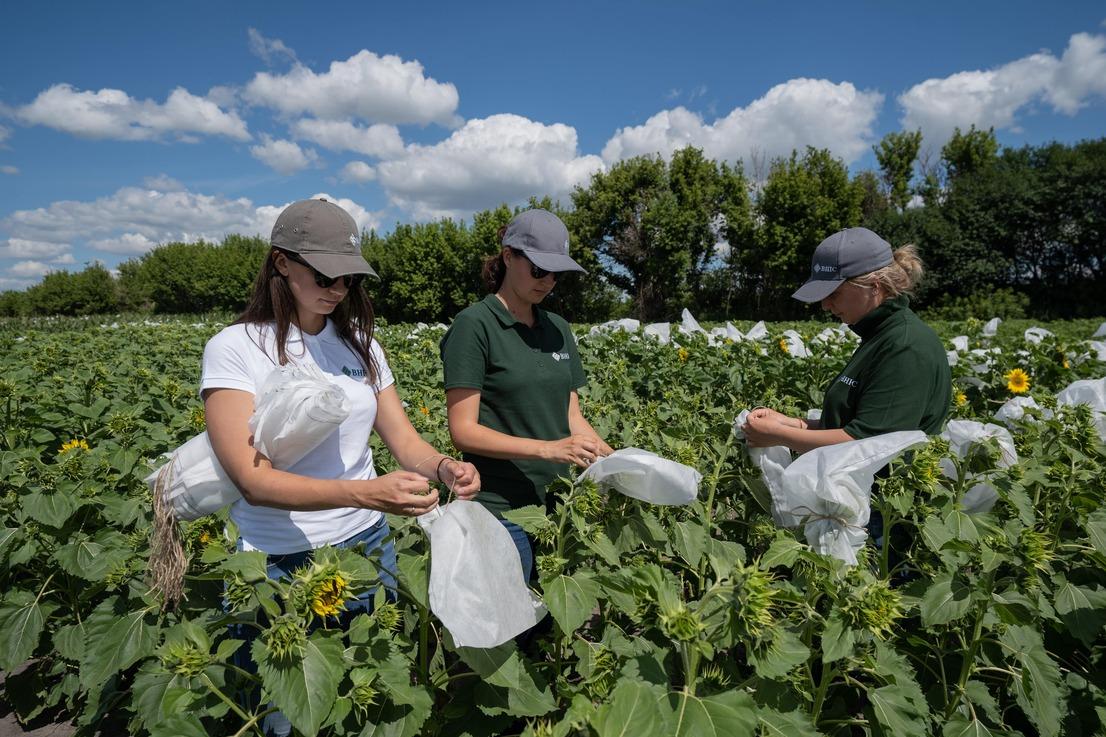
Futurist breeders: the product needs adaptability
- What do you focus on in your breeding work? Is it drought resistance and moisture retention? Or is it effective yield, when the seeds produce a normal yield with half the fertilizer rate?
- Breeders are futurists to some extent. They have to imagine what the future will look like and what will be needed there. We have the right to make mistakes, but mistakes are extremely expensive.
- However, this is true for everyone.
- Farmers have a short production cycle. And for breeders, it can take ten years to create a product. Well, seven years.
- But you are accelerating the introduction of new products, you are not leaving Chile...
- In any case, it takes three years to create a product, two years to test and register it, and then to reproduce it and bring it to the market, up to eight years in total... And it is extremely difficult to imagine what will happen in eight years. We believe that the main requirements are unchanged: yield, disease resistance, and high oil content for sunflower. However, we should take into account the influence of environmental factors. Look at the situation with the coronavirus. Hypophytosis of unknown organisms can occur at any time, there can be mutations and the formation of new races of broomrape. How will the climate change? Will it be hotter or colder, wetter? Can you predict what the climate will be like in the future?
- Yes, I can. I think it will be sausage for seven years, now there will be several years in a row with extremely cold winters and moderate temperatures in summer. Then there will be five years of drought. And after that, the climate will be normal.
Yaroslav looked confused at the man who was carelessly predicting the climate for decades to come and continued:
- “We are developing a product that can adapt to different conditions. Disease resistance is, in fact, a sign of adaptability. In addition, yields and resource requirements. Creating a material is about improving these characteristics step by step. The main thing is plasticity, environmental plasticity. By plasticity, we mean that wherever you sow a hybrid, you will get a high-quality result. If you sow it in dry conditions with poor agricultural practices, you will get a satisfactory result, and if you sow it in normal moisture conditions with good agricultural practices, you will get the maximum result. Such hybrids can be sold to the North, West, and South, and they will be productive everywhere.
From Yaroslav's reflections, I concluded that the main feature of the crops of the future will be their ability to adapt to different growing conditions, humid and arid climates, rich or poor lands, skillful or careless agricultural processes, and under any conditions, a quality harvest must be produced...
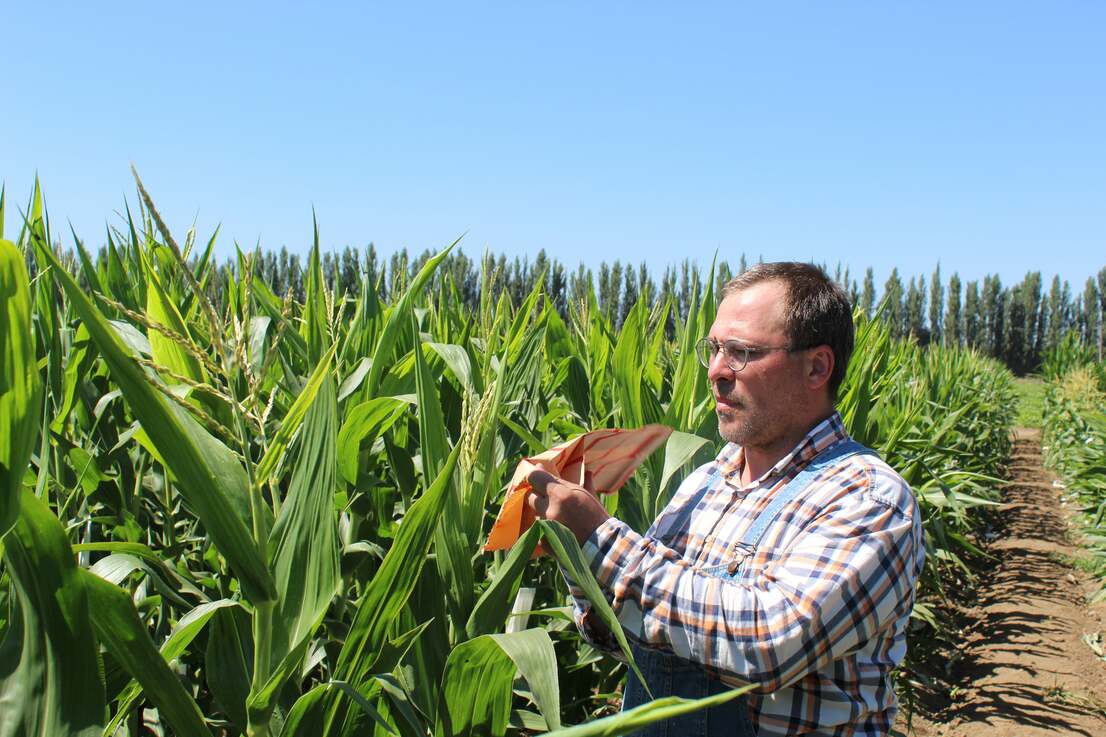
We have a special relationship with Time
- Do you follow the trend of global breeding, do you follow the development vector?
- We are probably in the trend, but the thing is that global breeding for profitable crops is more of a closed than an open thing. Before Covid, we participated in all the major scientific conferences, and I think we are at the forefront of science, we have all the modern materials and technologies, and we use everything in practice.
- AND CRISPR CAS?
- Without genome editing, we won't be able to move anywhere soon at all, it will become commonplace soon. It's the same idea as GMOs, but it's a different, cheaper, more accurate way of changing the genome. In both cases, bacterial mechanisms are used, but while GMOs take an already typed chain, CRISPR CAS replaces a specific element.
When mutagenesis was in vogue and predicted a great future, it was a directed change, and then we had to look for the right features. Now we have to know where the trait is and we have to know its coding in order to change it.
Soon, it will simply become one of the methods commonly used in working with crops and genome changes. True, we still don't know much and we may create something unpleasant for humanity. However, humanity has always been moving in this way, inventing gunpowder, then weapons... However, if we stop, progress will stop as well.
- How do you assess the Ukrainian seed market?
- Big global giants are pushing out smaller ones, globalization continues, and domestic breeding is disappearing. Remember, in the movie Highlander, only one of them is left. That's pretty much how things are going.
- But the Highlander, Duncan McLeod, had a special relationship with Time...
Everything we do in the field is technology from the past
I am still confused about the numbered names of VNIS hybrids, but I have learned over the years to distinguish Yaroslav Pariy from Myroslav Pariy. They are twins, but one is more involved in commerce and the other in science, but in a common cause, as often happens, everyone is responsible for everything.
However, they are both optimists, and they both have a great sense of humor. So I came to Myroslav to talk about science.
- “Our breeding processes are well-established, our people are professional, and everything is moving towards a bright future,” Myroslav smiles, “and the future has no choice but to be bright or dark. We can't help but believe in the best: the food security sector, to which we belong, can only develop, people will always need food. People are also multiplying, despite the covid. The agricultural sector is on the rise. And all of this is tied to seeds. Although Americans are thinking about alternatives, selling the entire seed business to other countries.
- Well, this is definitely a joke.
- This is not a joke. Think about what's happening in agriculture. We use tillage methods that are five thousand years old, if not ten, then five thousand years old.
All machines are powered by engines that are 200 years old. The large sophisticated seeders are also almost 300 years old, as is the sowing technology. All these technologies are from the past. These are intensified primitive processes, not including chemicalization and intensification of breeding activities.
Even in breeding, humanity has not advanced much; it is an extensive increase. Selection remains the selection that it was 15 thousand years ago, only then it was unconscious, and now it is comprehended. Hundreds, thousands of plant varieties are tested for productivity, and eventually the best ones are selected.
Even the invention of a vaccine is also a technology from several hundred years ago with some new elements. It uses things that have been known for a long time and have only now been developed. I don't see a leap, a breakthrough in progress.
- However, there is CRISPR CAS, which allows you to edit the genome... In the next five years, hydrogen-powered tractors will be on the fields...
- And a hydrogen tractor will pull a plow that is 15 thousand years old. Houses are now built of baked bricks, which also have a thousand-year history, and no better material has been invented.
Why does our civilization believe that progress is good and conservatism is bad? In our laboratories, we have a project on protein expression in plants.
To create immunological traits, you need a protein in the conformation in which it occurs in the human body. With several domestic companies, we discussed the possibility of creating a coronavirus protein in plants with subsequent immunization of mice and the creation of test systems.
This is a challenge for us, and we are starting this work. Recently, Nature Plants published an article about the regulation of genes and the creation of traits through transgenic expression. This is a technology where the field is sprayed with transgenic material, and the genetic material introduced from outside enters the cells, which is a temporary work. That is, if this genetic material encodes florigen, a small peptide that causes plants to bloom, then you can control the time of plant flowering.
If it is insect resistance, then the plant temporarily becomes resistant to pests. This is a new area of work in agriculture, it's a different level. We are also working on similar projects. In the spring, we are launching large-scale experiments to change corn genes.
We have already worked out the method of introducing exogenous DNA into plants in greenhouse conditions, at the three-leaf stage we make our marker genes work in them, and we have created a design that should increase yields. This is not entirely our development, we used data from other scientists, but there is no such method of application yet.
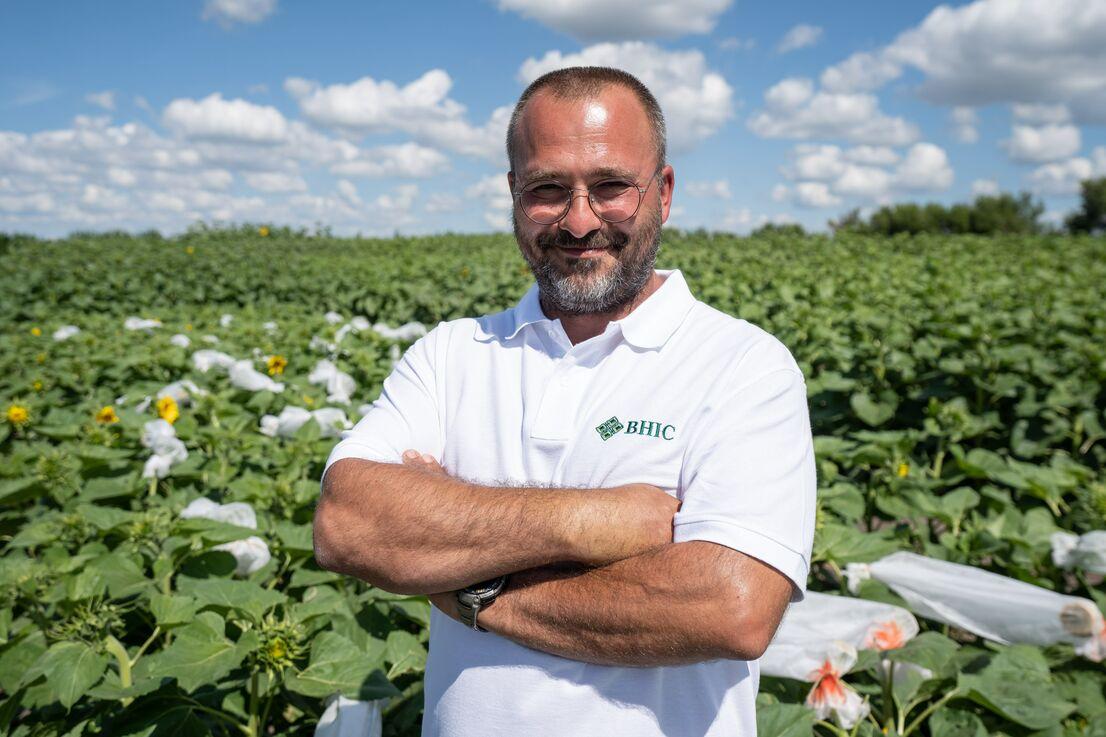
Waiting for a transgenic diabrotica
- And Yaroslav said that you are not gods.
- And one more thing I want to share. I was actively engaged in diabrotica, plants resistant to it. However, I came up with an idea: why not regulate the number of the insect itself?
There is a technology whereby transgenic males are released into the population, and the population size is fundamentally reduced. I looked up the protocols for transforming beetles and found out that we have everything for this, even a microinjection device for injecting DNA into the reproductive organs of insects to produce transgenic insects. The only thing separating us from working on beetles is the purchase of a $200 reagent. However, there are similar examples in the world when genetically modified mosquitoes were released.
- Everything is so complicated. Transgenic beetles in nature... Who knows what it will turn out to be
- I traveled through Chernivtsi, Zakarpattia, Ternopil regions... Ask a farmer whose corn has all disappeared whether he needs GM corn or whether he should release transgenic beetles. I'm more concerned about the apathy of the agricultural community and the scientific community to this problem. The whole country is facing this problem. Corn is a strategic crop for Ukraine.
- We don't have a lot of state strategies, it's true.
- It's sad to read on the Internet who invented the helicopter, who invented the computer, who launched the rocket in the United States... These people could have realized themselves here, all of this could have been organized.
- I don't know what your relationship with Time is... I clearly understand that until 2013-2014 we had no independence, no statehood, and no nation. What are seven years for a historical process? Nothing at all. We are a beautiful country that was born yesterday. We have everything ahead of us and everything will happen.
- Among the companies operating in Ukraine that are capable of producing seed, I would like to see our company at the level of domestic producers armed with science and potential.
I believe that the share of domestic companies in the market will increase, and in the next five years we will overcome the barrier that hinders development. It will be a question of choosing not by the characteristics of hybrids, but by the brand name. I believe that
in the next five years, Ukraine will have a system for controlling genetically modified organisms with a registration system.
The European Union and the rest of the world demand that Ukraine create a control system, i.e., lists will be created, because it is impossible to control what is not registered. As soon as the lists are created, they will be instantly commercialized.
In other words, in a short time, companies with this product will enter Ukraine - perhaps it will not be called GMO, perhaps it will be called BT, biotech plants.
This is the name in Europe, in Portugal. There is no GMO there, there is Bt corn. No one is afraid, no bugs eat it, people are happy. That is why we are constantly working on creating transgenic plants. We are experimenting with creating diabetes-resistant plants, primarily for foreign markets. Last year, China registered its own genetically modified organisms worldwide, including corn and soybeans, which means that it created an alternative to reputable producers and carried out mass registration.
The problem is not to register new species in Ukraine. They need to be registered in the five main markets.
In addition to seed production, there are exports and imports of products, and this requires registration. While we are familiar with the Ukrainian registration system, we have not yet experienced the bureaucratic procedures and regulations in other markets.
One more gene
- However, Ukrainian seeds have gained access to foreign markets.
- Let's not deceive ourselves.
International companies have lobbied for the opportunity to produce cheap seeds in Ukraine and export them.
The situation is obvious, but the general reaction was that Ukrainian producers can now enter foreign markets. Yes, this is also true, but to do so, you need to have registered hybrids there and be able to compete, at least have financial capabilities comparable to foreign companies, but none of the Ukrainian companies have such capabilities.
Poland and Slovakia are possible markets, but who among us will go to France?
- You are actively working to develop commercial cultures that are relevant to Ukraine. What exactly do you change in traditional crops that you are interested in?
- We are working hard on corn with modified starch. There are two types of corn starch: branched and unbranched. The production of starch is not yet very intensive in Ukraine, but there is information that factories will be built.
Corn starch is a niche product, but the market is quite large, and it is estimated that there may be up to 500 thousand hectares of such corn.
In addition, scientific publications show that with certain transgenic changes, corn actively accumulates starch at elevated temperatures. We are looking in this direction because climate change requires similar responses, and we could use extreme temperatures to increase drought resistance.
- This is interesting. When everyone's corn is burning, starch is rejoicing...
- Another recipe for drought is sorghum. Sorghum is a plant camel, and in some regions it can be a lifesaver for farmers. We have resumed our sorghum breeding program and are working on new hybrids.
- The South has long needed such camels. However, other regions crave high yields of crops familiar to Ukraine.
- For every request, there is an offer. Now a large multinational company is bringing transgenic corn with higher yields to the market. There are regulatory genes that regulate the work of other genes. In corn, there are 126 of them, and they are part of the so-called matrix. All these 126 genes were tested for their influence on various plant characteristics, and it turned out that the 28th of them, ZMM Matbox 28 EN, was found to be the most important.
If you make it work earlier, it actively affects plant growth and size, leaf width, and root development. The consumption of CO 2 is more efficient, phosphorus is more efficient, and as a result, this leads to an increase in yields of 7 to 10%, by regulating one gene. Almost out of the blue, without any additional investment, we get corn that exceeds all existing corn in terms of yield. This has already been patented and is being registered.
This is significant because biotechnology and genetic engineering are able to perform the same tasks as classical breeding. And we also intend to move in this direction, as the gates have opened for genome modification at the level of technology, not just at the level of selection. This is the future that has opened these gates.
- What technology is used to adjust this 28th gene?
- It is a transgenesis technology, but as the Dutch scientists noted, it is more appropriate to call it CIS-genesis. If you take genetic material from another organism, it's transgenesis, and if you take genetic material from the same organism, it's CIS genesis. This time, it's a rearrangement of elements in corn in a slightly different order, adding another regulatory gene, a copy of the same corn.
- What's going on with your wings?
- They are getting stronger. The projects we are working on have received a solid foundation in the form of new laboratories and specialists, and we are confidently moving towards solutions.
So are they gods or not?
I love scientists who are close to farmers and the land, who work not for theses and scientific awards, but for people. The leaders of VNIS are people of the fields, their corn Amarok 290 and VN 6763 show farmers that they can count on a yield of 10 tons and beyond their wildest dreams, their sunflowers Shannon and Atilla produce 3.8 tons each on soils with a biological yield of one and a half tons.
“When the breakthrough happens, I know who will bring thirty-ton corn and eight-ton sunflowers to the fields.
It is pointless not to believe. In 2008, ZERNO magazine published a challenge from a farmer: “We have swung for 200 centners” of corn, and I printed this material with a secret thought: “People, look at the crazy people among us.” But nowadays, 20 tons doesn't seem like a fantasy. So I talk about the future... either with faith or simply with the expectation of sensations and breakthroughs.
But it will happen, I know for sure.
Even though people are not gods.

 Choose a country
Choose a country